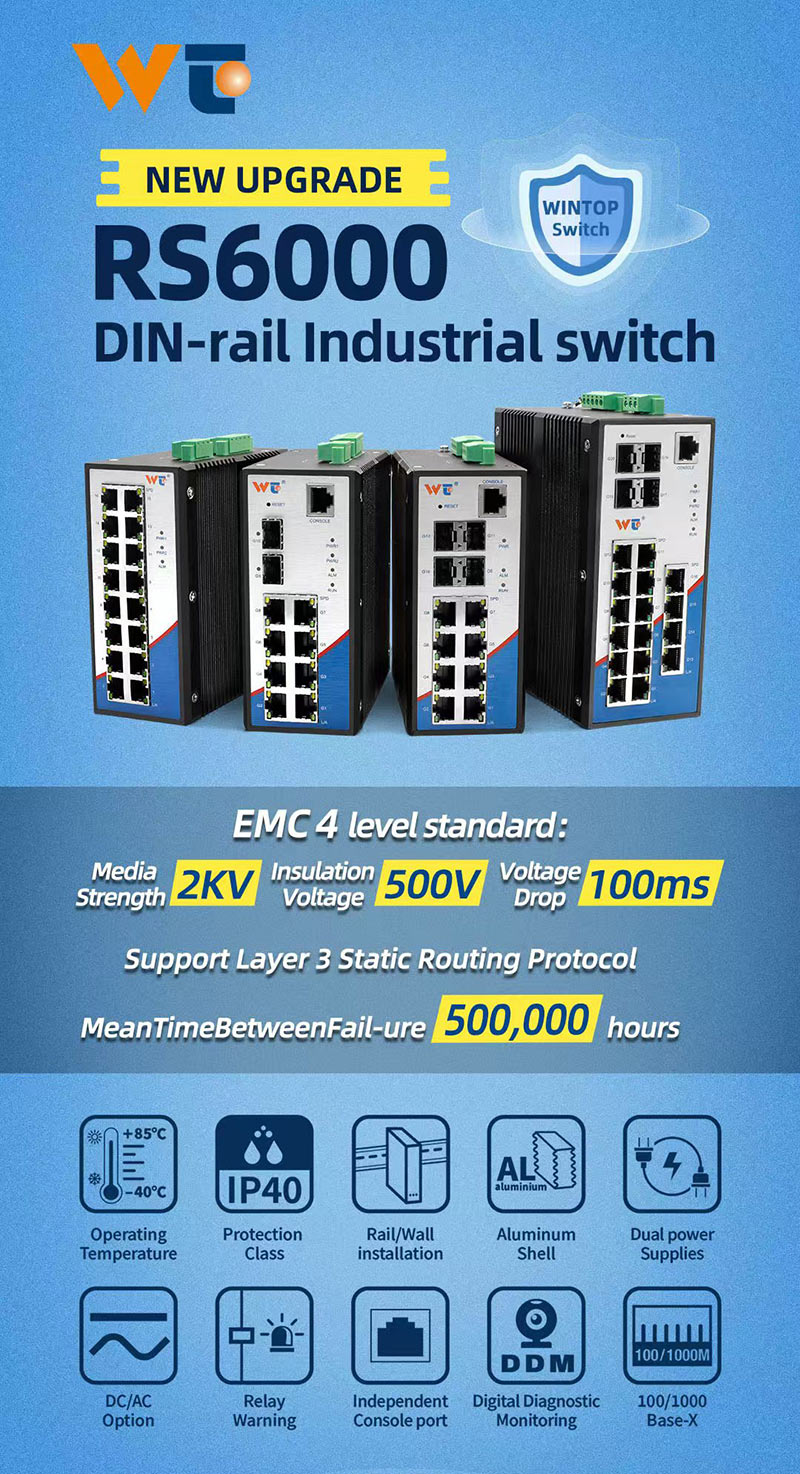Industrial Switch Industry Applications: Enhancing Connectivity and Reliability
In the realm of industrial automation and control systems, the role of industrial switches is indispensable. These devices serve as crucial components that facilitate the seamless operation of networks within manufacturing environments, ensuring robust connectivity and reliable data transmission. This article delves into the various applications of industrial switches, highlighting their significance, functionality, and benefits in enhancing operational efficiency across diverse industrial sectors.
Understanding Industrial Switches
Industrial switches are specialized networking devices designed to withstand harsh environmental conditions prevalent in industrial settings. Unlike their commercial counterparts, industrial switches are built to endure extremes in temperature, humidity, vibration, and electromagnetic interference (EMI). They form the backbone of industrial communication networks, enabling real-time data transmission and control essential for automation processes.
Key Applications in Industrial Environments
1. Automation and Control Systems:
Industrial switches play a pivotal role in automation and control systems by connecting PLCs (Programmable Logic Controllers), HMIs (Human Machine Interfaces), sensors, actuators, and other devices. They ensure reliable and low-latency communication, crucial for maintaining operational continuity and optimizing production efficiency.
2. Manufacturing and Assembly Lines:
In manufacturing and assembly lines, industrial switches facilitate the integration of machinery and equipment. They enable seamless data exchange, synchronization of operations, and coordination of processes, thereby supporting just-in-time production and reducing downtime.
3. Power and Energy Sector:
Within the power and energy sector, industrial switches are deployed in substations, power generation facilities, and distribution networks. They enable monitoring and control of electrical grids, ensuring reliable transmission of data for load management, fault detection, and preventive maintenance.
4. Transportation and Infrastructure:
Industrial switches are essential in transportation systems such as railways, airports, and smart highways. They support communication between traffic control systems, surveillance cameras, automated ticketing systems, and other infrastructure components, contributing to enhanced safety, efficiency, and passenger experience.
5. Oil and Gas Industry:
In the oil and gas sector, industrial switches are utilized in remote offshore platforms, refineries, and pipelines. They enable remote monitoring of critical infrastructure, facilitate real-time data acquisition from sensors and control valves, and ensure secure communication for operational continuity and safety compliance.
Benefits and Features
Industrial switches offer several key benefits that make them indispensable in industrial applications:
- Robustness and Durability: Designed to withstand harsh environmental conditions and industrial hazards, including temperature fluctuations, dust, moisture, and electromagnetic interference.
- Reliability: Ensure high reliability with features such as redundancy, fault tolerance, and Quality of Service (QoS) mechanisms to prioritize critical data traffic.
- Security: Incorporate advanced security protocols such as VLANs (Virtual Local Area Networks), Access Control Lists (ACLs), and port security mechanisms to protect against unauthorized access and cyber threats.
- Scalability: Support for scalable network architectures, including ring, star, and mesh topologies, allowing flexibility in network design and expansion.
Conclusion
The application of industrial switches spans across diverse sectors, playing a pivotal role in enabling reliable communication, enhancing operational efficiency, and supporting critical infrastructure. As industries continue to embrace digital transformation and automation, the demand for robust and resilient industrial networking solutions is expected to grow. Industrial switches not only ensure seamless connectivity but also pave the way for innovation in industrial IoT (Internet of Things) and Industry 4.0 initiatives, driving productivity and competitiveness in the global market.
In essence, the industrial switch industry is poised for continuous evolution, catering to the evolving needs of modern industrial environments with solutions that prioritize reliability, scalability, and security.
